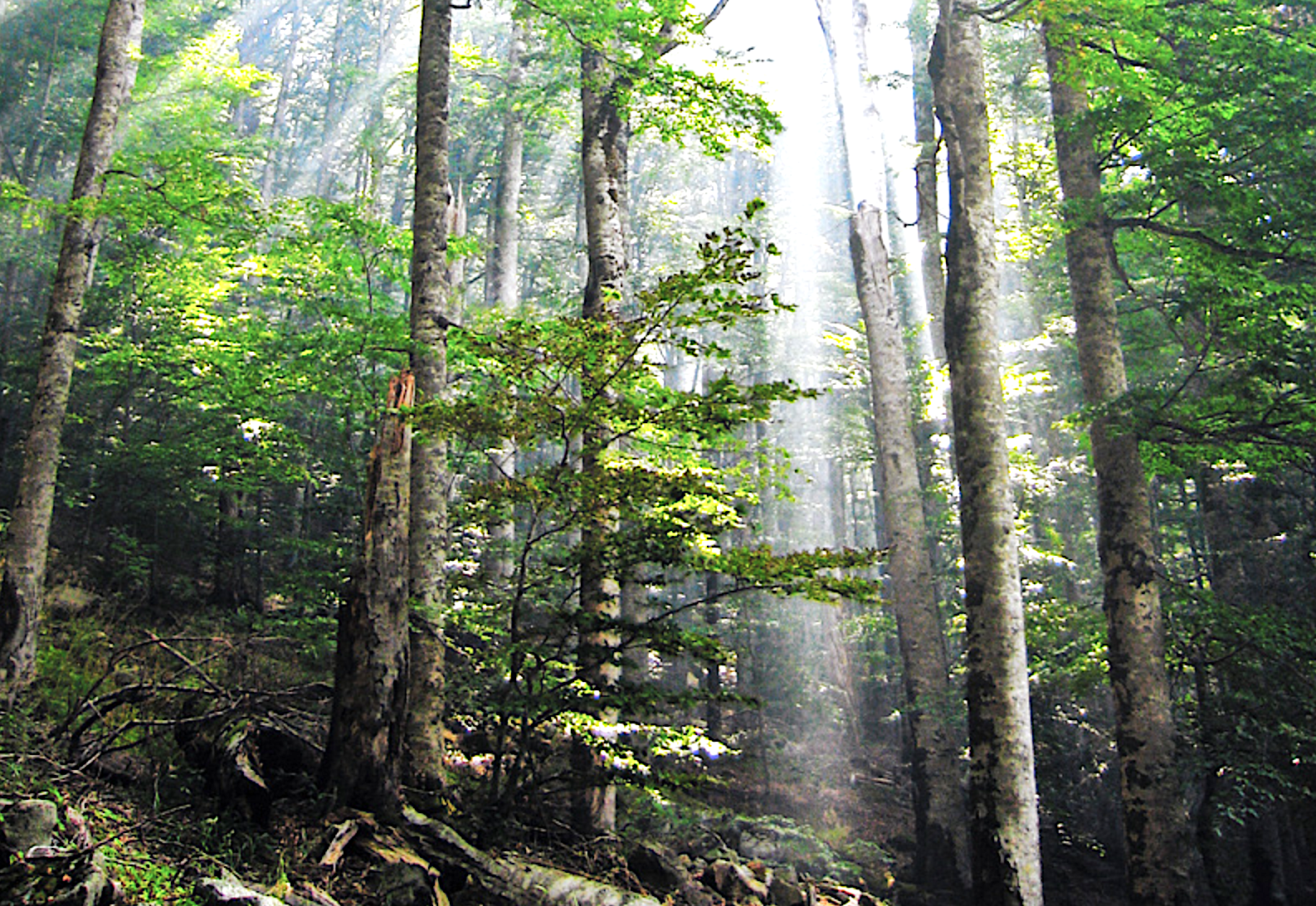Tune Into Tree.fm: An Online Radio Station That Streams the Soothing Sounds of Forests from Around the World

Image by Sne?ana Trifunovi?, via Wikimedia Commons
Walk into a forest. Stand perfectly still. Close your eyes. What do you hear? The sounds of birds, the rustling leaves, yes, yes…. But what’s that? And that? The forest is full of sounds you can’t identify! Curious sounds, far-away sounds, soothing sounds, sounds that are not the churning anxious wheels inside your head when you try to relax….
Experiencing ourselves around trees has several demonstrable benefits, as the science of forest bathing has taught us. Many of these have to do with visual, olfactory, and tactile pleasures. But we must not neglect the natural acoustic system all around us: an immersive experience in full 360-degree sound. Trees’ “vibratory energies reveal humanity’s many connections with forests,” writes David George Haskell at Scientific American.
Forests “are full of song.”
That’s all very well for people who can go outside. But if you’re locked down in a major city, say, or the office, or an ill-advised holiday gathering, and you feel cortisol levels rising, we’ve got you covered. Back in September, we featured Sounds of the Forest, a crowdsourced audio archive gathering sounds from forests all over the world. Now, these clips are streaming at Tree.fm, an online radio station for tree songs in stereo.
Streams rill, frogs hoot, birds caw and squawk in chorus. And then there are the trees, each species possessed of its own voice, Haskell writes:
Gusts of wind sonify plant diversity. Oak’s voice is coarse-grained, throaty; maple’s is sandy and light. These differences have their origins in plant evolution and adaptation. Drought-resistant oak leaves are thicker, tougher than the water-hungry maple. The different sounds of trees on a dry mountain ridge and in a moist forested hollow speak to the particularities of the ecology of each place. Ponderosa pine sings sweetly in the winds of California, its long needles were, John Muir wrote, “finest music” and a “free, wing-like hum”. But in Colorado, pines have evolved shorter, stiffer needles to cope with heavy loads of snow and ice. There, the trees wail as their wiry needles harrow the wind.
Tree.fm “is a tool that gives you instant access to the sounds of the world’s forests,” Beth Skwarecki writes at Lifehacker. Many of those sounds, like the forests that produced them, are endangered, not only from the usual suspects but also the noise pollution of highways and housing developments. Listen to forest songs on repeat or hit “listen to a random forest” and be “transported to Madagascar to listen to some lemurs, or to Ghana to hear some peacefully rushing water, or to Russia, where a bird I’ve never heard of puts on a vocal performance.” This is good medicine. Discover the forest songs that best soothe your nervous system or delight ears at Tree.fm.
Related Content:
Sounds of the Forest: A Free Audio Archive Gathers the Sounds of Forests from All Over the World
Free: Download the Sublime Sights & Sounds of Yellowstone National Park
How to Find Silence in a Noisy World
Josh Jones is a writer and musician based in Durham, NC. Follow him at @jdmagness
Tune Into Tree.fm: An Online Radio Station That Streams the Soothing Sounds of Forests from Around the World is a post from: Open Culture. Follow us on Facebook, Twitter, and Google Plus, or get our Daily Email. And don't miss our big collections of Free Online Courses, Free Online Movies, Free eBooks, Free Audio Books, Free Foreign Language Lessons, and MOOCs.
from Open Culture https://ift.tt/3mL8qtk
via Ilumina
Comments
Post a Comment